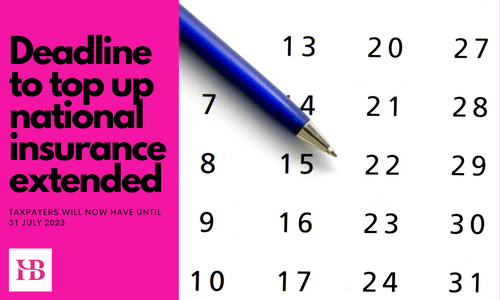Welcome to HB Accountants Monthly Tax Update for July 2017. In this month’s update, we will be outlining the Common Reporting Standard (‘CRS’) and what it means for our clients and contacts.
What is the CRS?
The Common Reporting Standard, generally known as the Global FATCA, is a regulation initiated by the OECD, aiming at preventing tax evasion and leading to a global automatic exchange of information between CRS-participating jurisdictions.
Which countries will be adopting the CRS?
The governments of over 100 countries have so far committed to the automatic exchange of information and the list is still growing.
The UK has committed to commence automatic information exchange, along with 56 other jurisdictions, by September 2017.
Which financial institutions are required to report?
Financial institutions that may have a duty to report include:
- Banks (including local banks)
- Custodial institutions
- Trust companies
- Brokers
- Insurance companies
- Collective investment vehicles
- Investment managers and funds.
Which accounts are reportable?
The accounts that are reportable under the CRS include accounts held by individuals and entities i.e. trusts and foundations.
Details and information to be reported
The following information will be reported
- Personal information: Name, address, taxpayer identification number (e.g. UTR number in the UK), date of birth and place of birth of account holder
- Country of residence of the account holder
- For entities – the above for each controlling person
- The account details
- The financial institution’s details
The following financial information will be reported:
- The account balance
- Interest, dividends, and sales proceeds from financial assets
- The applicable currency of the account
How will the CRS affect me?
Financial institutions will be required to identify customers who are tax resident in one country but have financial accounts held in another for reporting purposes. To do this they will need to collect and report certain information on the ‘reportable person’ and their financial accounts to the local tax authorities.
The above means that HM Revenue & Customs (HMRC) and other tax authorities around the world will now have access to a vast amount of data, so it is becoming progressively more important for account holders to regularise their tax affairs at the earliest opportunity, as the penalty and disclosure regime will become much less favourable following the implementation of the CRS.
How can I bring my tax affairs up to date prior to the implementation of the CRS?
The Worldwide Disclosure Facility (‘WDF’) opened on 5th September 2016, this facility allows anyone to disclose a UK tax liability relating either wholly or partly to an offshore issue to HMRC.
Why Should I use the WDF?
HMRC has stated that the WDF is the final chance to put things right for those individuals with outstanding UK tax liabilities on undeclared offshore money or assets.
This last chance comes before HMRC starts to receive an unprecedented amount of data on offshore accounts held by individuals with a footprint in the UK.
Sanctions facing those who have not come forward already or use the WDF will be far tougher in the future, with the potential prospect of minimum penalties of 100% of the tax due and an increased chance of criminal prosecution.
How can HB Accountants help?
The HB Accountants tax team have experience in making disclosures to HMRC including via the WDF. HB accountants can assist you with computing any liabilities due under the WDF and assist you with approaching HMRC to ensure you minimise your financial exposure.
If you would like any further information regarding the above, or have any queries, please do not hesitate to contact John Neighbour (Tax Director), Amy Armitage (Tax Manager) or any other member of the HB Accountants team on 01992 444466.



